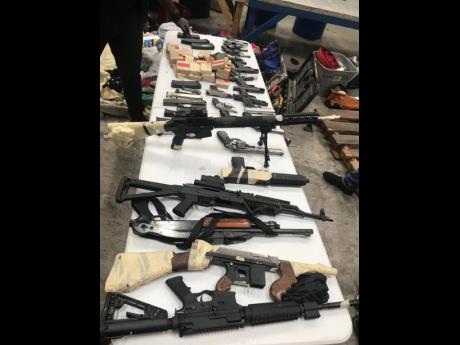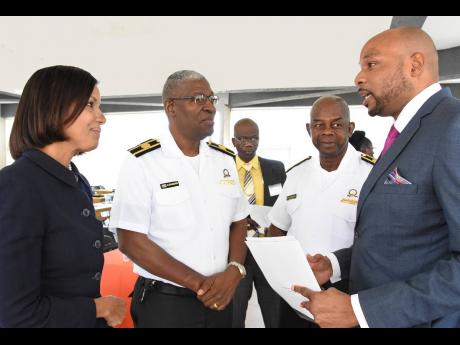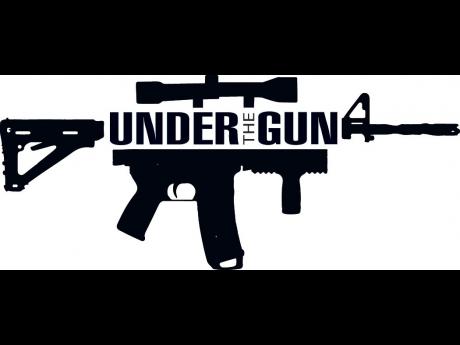Under the Gun | Ramp up tech fight against gunrunners – expert
The United States Government is being urged to help bolster Jamaica’s security at the island’s unofficial ports of entry as local law enforcers cite these as the main channels through which Jamaica’s influx of illegal guns and ammunition come from its northern neighbour.
Winsome Packer, coordinator for counterterrorism and non-proliferation studies at Caribbean Maritime University (CMU), listed American intervention among fundamental steps needed to break the back of an illicit gun-smuggling ring plaguing Jamaica.
“The guns that are coming from the US are made in the US, so they have an obligation to do their part to stop the guns from flowing into not just Jamaica, but the Caribbean region,” argued the Jamaica-born lecturer, who has worked extensively in national security and counterterrorism in the United States and Europe for decades.
"In recent years, the US government has instituted stringent measures in the land, the air, and in the maritime domains. It is difficult for me to conceive that guns can continue to flow with such regularity into Jamaica without complicity on both ends,” she said, following a conference dubbed ‘Countering Proliferation Challenges in the Caribbean’ that was held at CMU recently.
“As I understand it, Jamaica has [more than a] hundred little points of entry to the island where a little canoe or boat can pull up. They are not guarded, they exist, and the traffickers know of them,” argued Packer.
“If we are serious about countering this problem, we have to make it a priority to invest in infrastructure that includes one or two guards, or technology to monitor electronically arrivals, departures, and other activities at these ports remotely,” she said.
“You can also use sensors to detect movement, and these are areas that our partners could assist Jamaica in hardening its borders,” argued Packer, noting that trying to detect gun smugglers on the high seas where weapons can be easily discarded is inefficient.
Such security implementation, she said, would require partnership with international and local agencies such as the Port Authority of Jamaica, and Jamaican law enforcement. It will also require the breaking of corrupt ties between Jamaica’s leaders and criminals.
“Official entities of government are colluding with criminals to ship these arms. I don’t say that with any evidence, but it is just my assessment of the situation as an analyst,” she explained. “Until you deal with that (corruption) issue, you will not be able to deal with the gun-smuggling issue fundamentally.”
MAJOR TRANS-SHIPMENT POINT
Her sentiments preceded announcements by National Security Minister Horace Chang more than a week ago that the Government will be looking to bolster security at unofficial ports.
“Jamaica remains a major trans-shipment point for the narcotics trade. When placed in this context, proper monitoring, multimodal surveillance and increased border security become fundamental issues that must be addressed in our overall crime-fighting architecture,” Chang told attendees to a conference put on by the Passport, Immigration and Citizenship Agency (PICA).
Border-security workers at both the conference put on by PICA and the CMU roiled in disbelief last week at the revelation by this newspaper that less than one per cent of the roughly 357,000 containers that left the Port of Miami last year were fully examined.
“We have to screen every single container, every box that goes there (US). How is it then that they can’t screen everything that is coming here? But, you know, Jamaica is too small for them to see us as a priority, it doesn’t matter how many persons are being killed by the gun here,” said the port worker, who also argued that most of the illegal guns enter the island through its unofficial ports of entry such as the Rocky Point fishing village in Clarendon.
A US port official told The Sunday Gleaner that less than one per cent of containers undergo scrutiny from customs and security officers.
Senior security practitioners told the CMU conference that there are 145 unofficial ports of entry into the island, and that those on the southern and eastern coastlines are most active. This is so despite the US donation of more than US$20 million for eight boats, training and other equipment to the Jamaica Defence Force Coast Guard since 2014.
More than 300 guns have already been seized in Jamaica between January 1 and June 1 this year, which represents a three-year low for the comparative five-month period. Approximately 6,600 rounds of ammunition have been seized up to June 1 this year, jumping from 5, 573 rounds of ammunition confiscated from criminals in 2018.
In the meantime, there were 548 murders up to June 1 this year, many of which were gun-related. The St Andrew South Police Division accounted for the most bloodshed with 68 killings, while St James, which has been under a state of emergency since April 30, follows with 58.
“There has to be accountability at the top so that when people at the lower level are not performing, shirking their responsibility or are complicit, ultimately they are going to be held responsible at the higher level,” Packer insisted.
“We need better tracking of ships and other forms of transport that utilise the sea or the air to transport these guns. You can actually target points of origin and destination for enhanced monitoring, you even target vessels from particular ports which have Jamaica as their destination,” she said, noting that Jamaican authorities need to develop a stronger database about vessels entering and operating in its ports.




